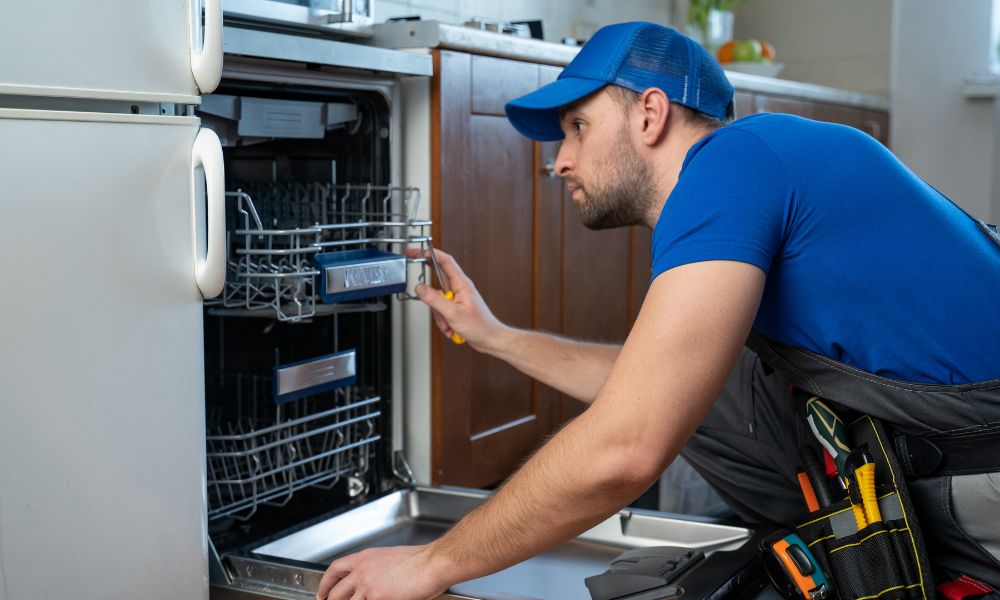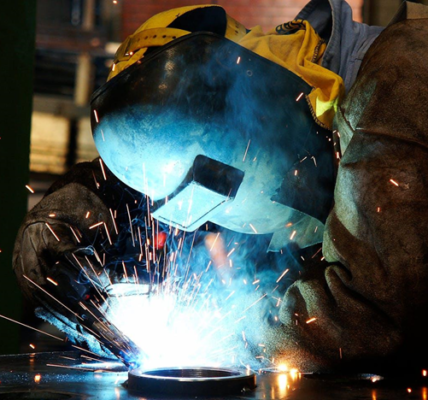Your fridge freezer is one of the most essential appliances in your home, keeping food fresh and frozen to ensure safe consumption. However, when it malfunctions, it can be a major inconvenience, not to mention a potential health hazard. Understanding common problems and basic fridge freezer repair techniques can help you restore its functionality without needing an immediate professional call. Here’s a complete guide to troubleshooting and maintaining your fridge freezer for optimal performance.
Common Fridge Freezer Problems and Their Solutions
Fridge Freezer Not Cooling Properly
Possible Causes:
Dirty Condenser Coils: Dust and dirt on the coils can prevent the fridge from cooling efficiently.
Faulty Evaporator Fan: This fan circulates cold air throughout the fridge. If it stops working, cooling will be uneven or non-existent.
Thermostat Issues: A broken or miscalibrated thermostat may not correctly control the temperature.
Blocked Vents: Obstructed vents can restrict airflow and lead to poor cooling.
Solution:
Clean the condenser coils located either at the back or the bottom of the fridge.
Test the evaporator fan motor for continuity using a multimeter and replace it if faulty.
Inspect and replace the thermostat if it’s not functioning properly.
Make sure vents inside the fridge and freezer aren’t blocked by food or containers.
Fridge Freezer Making Unusual Noises
Possible Causes:
Faulty Compressor: A failing compressor may produce loud noises, particularly when starting or stopping.
Worn Fan Blades: The evaporator or condenser fan blades can become loose or damaged, creating rattling or clicking noises.
Ice Buildup: Excessive ice formation can cause parts to move unevenly, leading to noise.
Solution:
Listen to the compressor—if it’s making unusual sounds, you may need a professional to inspect or replace it.
Inspect fan blades and replace them if they are bent or damaged.
Defrost the freezer if ice buildup is significant, and check the defrost system for any malfunctions.
Fridge Freezer Leaking Water
Possible Causes:
Clogged Defrost Drain: The drain can become blocked with debris or ice, causing water to pool in the bottom of the fridge.
Damaged Water Supply Line: If your fridge has an ice maker or water dispenser, a cracked or loose water line can lead to leaks.
Incorrect Fridge Leveling: If the fridge isn’t level, water can overflow from the drain pan instead of evaporating.
Solution:
Clean the defrost drain with warm water and a small brush to remove any clogs.
Inspect the water supply line and replace it if it’s damaged or leaking.
Ensure your fridge is properly leveled by adjusting its feet to allow for adequate drainage.
Freezer Not Freezing
Possible Causes:
Frosted Evaporator Coils: When the coils frost over, airflow is blocked, reducing the freezer’s cooling capacity.
Faulty Defrost Timer or Heater: The defrost system might not be functioning properly, leading to frost buildup.
Condenser Fan Problems: A malfunctioning condenser fan may prevent proper heat dissipation, causing cooling issues.
Solution:
Manually defrost the freezer if necessary, and inspect the evaporator coils for frost. If frost returns quickly, test the defrost system.
Use a multimeter to check the defrost timer, heater, and thermostat, and replace faulty components.
Ensure the condenser fan is running smoothly and replace it if needed.
Ice Maker Not Working
Possible Causes:
Clogged Water Line: Mineral deposits or ice can clog the water line, preventing water from reaching the ice maker.
Faulty Water Inlet Valve: The valve that supplies water to the ice maker may be defective.
Temperature Too High: If the freezer isn’t cold enough, ice cubes won’t form properly.
Solution:
Inspect the water line for clogs or ice. Flush the line with water or clear any blockages.
Test the water inlet valve for continuity and replace it if it’s faulty.
Ensure the freezer temperature is set between 0°F and 5°F (-18°C and -15°C) for proper ice production.
When to Call a Professional
While many fridge freezer repairs can be handled with basic troubleshooting, some issues are best left to professionals:
Compressor Problems: Compressor repairs or replacements involve handling refrigerants and electrical components, which require professional expertise.
Refrigerant Leaks: A leak in the refrigerant system will need to be identified and repaired by a certified technician to avoid environmental hazards.
Electrical Issues: If you notice burnt smells, sparks, or recurring electrical problems, it’s crucial to have a licensed professional inspect your appliance for safety reasons.
Preventative Maintenance Tips
Regular maintenance can help you avoid many common fridge freezer problems:
Clean the Condenser Coils: Dust and debris on the coils can reduce cooling efficiency. Clean them every six months with a vacuum or brush.
Check the Door Seals: Make sure the door gaskets are clean and free of cracks to maintain a proper seal. Replace damaged gaskets to prevent cool air from escaping.
Defrost the Freezer: If you don’t have an automatic defrost feature, manually defrost the freezer to prevent excessive ice buildup.
Organize Food Properly: Avoid blocking air vents with food, and allow space for air circulation inside the fridge and freezer compartments.
Monitor Temperature Settings: Keep the fridge between 37°F and 40°F (3°C to 4°C) and the freezer at 0°F (-18°C) for optimal performance.
Inspect the Water Filter: If your fridge has an ice maker or water dispenser, replace the water filter every 6-12 months to ensure clean water flow.
Fridge freezer repair doesn’t always have to involve a costly professional service. By understanding common problems and performing basic maintenance, you can keep your appliance running smoothly for years. However, always prioritize safety and consult a technician for more complex issues, especially when it comes to refrigerants and electrical components. With proper care, your fridge freezer will continue to keep your food fresh and frozen reliably.









